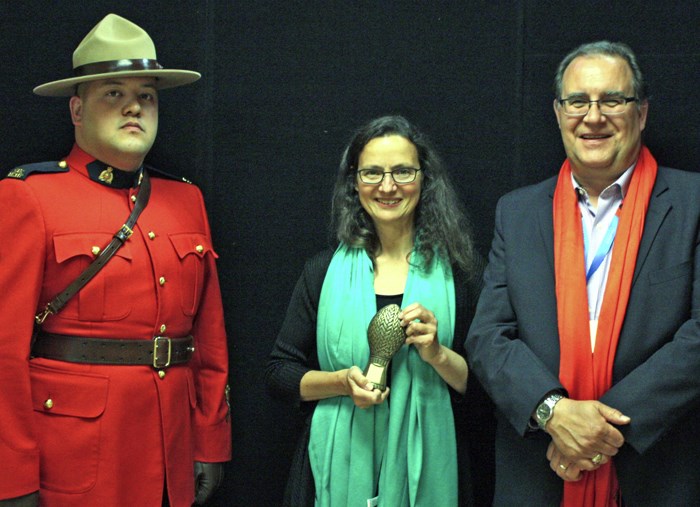It may seem a bit extreme to a lot of people to pack up your family and move out into the Yukon bush for nine months, but that is precisely what filmmaker Suzanne Crocker felt she had to do.
“I think despite our best intents, for all of us, [technology] tends to have this all-consuming role in our life,” she said. “I’m still amazed even just how much even email takes up in my day. We’re not an overly technologied family, never have been, we don’t own any cell phones, so we try and keep it to a minimum, but even so, I think, life gets in the way sometimes of our real priorities and it’s really hard to make the time and find the time to really be present in the moment.”
Suzanne and her husband were both rural physicians in the Yukon. She retired a while back and started making films. For a couple of years they had been planning to go into the bush, but the idea of filming the experience was a last minute one.
“The decision to go into the bush came first and that was because life was getting too hectic and the family we felt we were starting to pull apart a bit and the kids were growing up too fast,” she said. “We thought we’d do something to reconnect so it was mostly for the parents I would say to get us away from our schedules and our preoccupation with projects and jobs and computers and just kind of go cold turkey from that and take our family somewhere where we couldn’t be distracted and that was the middle of the Yukon bush with no technology, no phones and not even a clock or a watch.”
It was not lost on her that taking a video camera was kind of contrary to their stated purpose.
“There’s these ironies associated with it,” the decision to document it came maybe a month and a half before we left and that was spurned on by all the curiosity there was from friends and family down south about why we would do this and what this would look like, where the concept of taking your family and living in the bush wasn’t familiar at all so I really wanted to document it.
“Up north the concept of going out on the land or into the wilderness to get grounded is not uncommon. People are familiar with the concept of living in the bush up there so our community was behind us a hundred per cent even though we were eventually leaving them doctor-less, they still understood and were supportive.”
Still, she worried about the intrusion of the camera.
“One of the challenges of filming was making sure that I didn’t cross the line where I turned the experience into a film project because it was so important for our family to have this experience that I didn’t want to wreck that whole premise or not have the experience myself, so I did walk a fine line between when I brought out the camera out and when didn’t, Crocker said.
“The thing about a nine-month shoot is that it gives you lots of space so lots of time when you don’t need to bring out the camera and even though we came out of it with over 500 hours of footage, there was still lots of time when the camera was in its case.
“On the flip side, the reason I was able to capture what you see in the film was because there was no external crew. It is authentic and from my family’s perspective they quickly learned to ignore the camera so they didn’t change their behaviour whether the camera was on or off and that’s why I could capture the authenticity of what was going on.
In addition to being an entry in the film competition and a nominee in the Documentary Point of View category, organizers of the festival chose the resulting film, All the Time in the World, to launch a new program of Kids at YFF. To reinforce the theme of the film, after the screening naturalists from the Yellowhead Flyway Birding Trail Association took the kids on a technology-free hike in the Ravine Ecological Preserve. Crocker felt honoured to be part of the program.
“It’s really special,” she said. “I hope the film speaks both to adults and to youth and it’s always great to have youth in the audience and in the past I would say children have really enjoyed the film and it has inspired them.
“After one screening there was a nine-year-old girl in the audience at a festival and she came up to me after and she said, “I think this film is going to change my life” and she gave me a big hug
“A big part of the film is when you give kids space and allow them maybe to be a bit bored is how creative and resourceful they become and another theme of the film is reconnecting us all with nature.”
All the Time in the World won the Golden Sheaf for Documentary Point of View.



